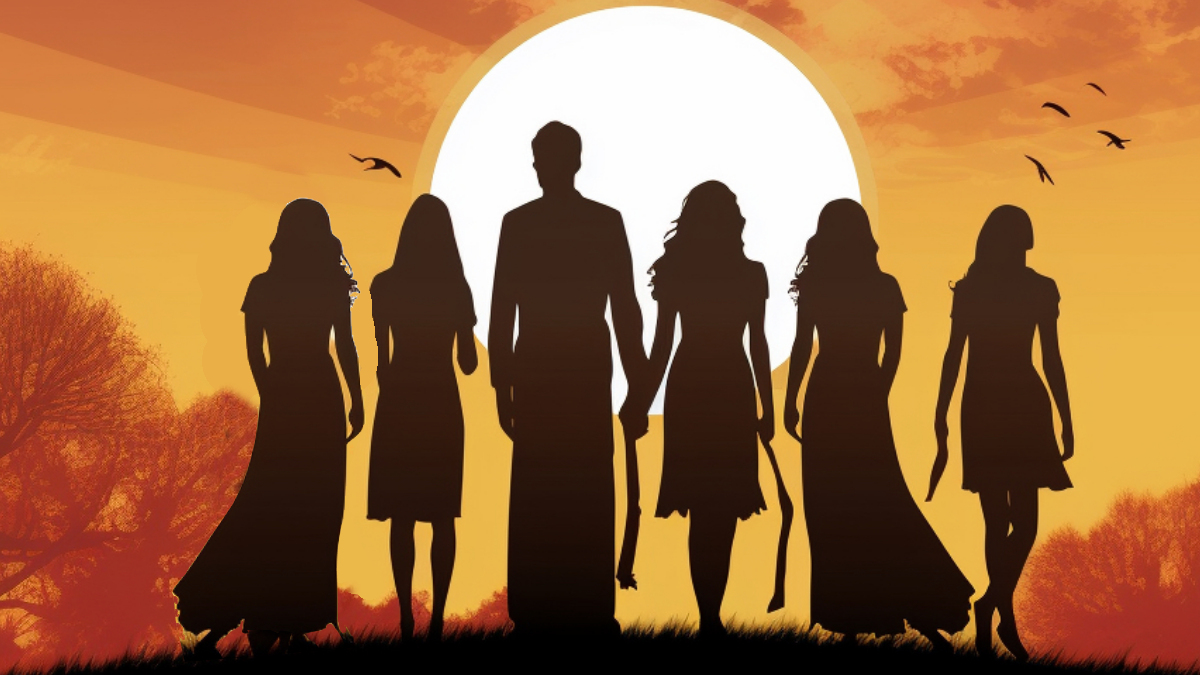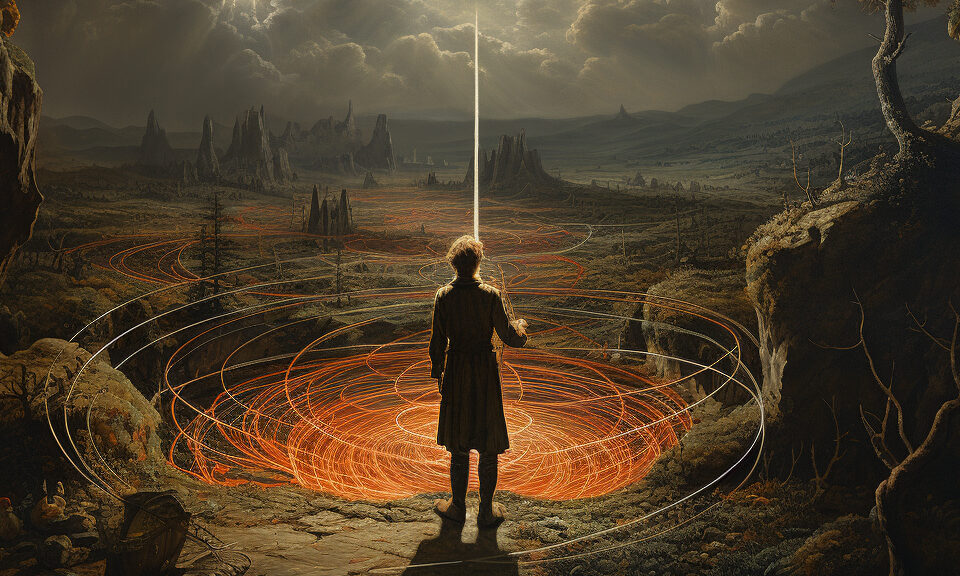
8. First Sealing Dressed as a Man
September 26, 2024
6. Promises of Salvation
September 28, 2024At least one of the women was only given twenty-four hours to decide to agree.
Table of contents
- At least one of the women was only given twenty-four hours to decide to agree.
- A1) Shortly after Lucy Walker’s family arrived in Nauvoo, in the spring of 1841, Lucy’s mother died. Lucy Walker was 15 years old at the time. Joseph Smith invited the four oldest children of the Walker family, which included Lucy, to come live with him.
- A2) Shortly after taking the children into the home, Joseph calls Lucy’s father on a Mission to the Eastern States.
- A3) Once Lucy’s father was gone, Joseph tells Lucy she is to be his wife. Joseph does not give 15-year-old Lucy time to consult with anyone, including her father who is away on a mission. Lucy’s brothers were also out of town buying supplies when Joseph approached her.
- A4) Joseph told Lucy she had until the next day to decide, it was a commandment of God, it would ensure the salvation of her family, and if not the “gate will be closed forever against you.” This culminated in her being separated from family, two full sleepless nights, and the stress of eternal salvation hanging in the balance while trying to make the decision.
- A5) Lucy is sealed to Joseph when she is 17 years and 1 day old.
- A6) Lucy’s testimony from the temple lot case expounded on the circumstances of the plural marriage.
- Issues these Facts Raise
- Questions these Facts Raise
A1) Shortly after Lucy Walker’s family arrived in Nauvoo, in the spring of 1841, Lucy’s mother died. Lucy Walker was 15 years old at the time. Joseph Smith invited the four oldest children of the Walker family, which included Lucy, to come live with him.
Supporting Sources and Quotes
Lucy remembers, “The Prophet came to the rescue. He Said, if you remain here Bro. Walker, you will soon follow your wife. You must have a change of scene, a change of climate. You have Just such a family as I could love. My house shall be their home...place the little ones with kind friends, and the four Eldest shall come to my house and [be] received and treated as my own children...”
-http://www.wivesofjosephsmith.org/23-LucyWalker.htm
- Also available in Brian Hales document repository here: http://mormonpolygamydocuments.org/wp-content/uploads/2014/12/JS0475.doc
A2) Shortly after taking the children into the home, Joseph calls Lucy’s father on a Mission to the Eastern States.
Supporting Sources and Quotes
The change of scene and climate that Joseph had in mind for John Walker was a two year mission to the eastern states. In response to this arrangement Lucy said,
“I rung my hands in the agony of despair at the thought of being broken up as a family, and being sepparated from the little ones…”
In addition, Smith made arrangements for John’s family, farming out the six youngest children to family friends, while the oldest four would live in his own home as his “own children.” While Lucy describes her father’s departure as something Smith recommended for his health, from other sources we know that John was sent on a two-year mission to the eastern states. Catherine’s daughter wrote, “[Lydia Walker] died in 1842 and mother and her sisters and brothers were taken to the home of the Prophet Joseph Smith and raised as his own. Mother’s father was meanwhile sent East on two missions.”
- Todd Compton, In Sacred Loneliness
A3) Once Lucy’s father was gone, Joseph tells Lucy she is to be his wife. Joseph does not give 15-year-old Lucy time to consult with anyone, including her father who is away on a mission. Lucy’s brothers were also out of town buying supplies when Joseph approached her.
Supporting Sources and Quotes
A4) Joseph told Lucy she had until the next day to decide, it was a commandment of God, it would ensure the salvation of her family, and if not the “gate will be closed forever against you.” This culminated in her being separated from family, two full sleepless nights, and the stress of eternal salvation hanging in the balance while trying to make the decision.
Supporting Sources and Quotes
Joseph Smith said to Lucy Walker: “It is a command of God to you. I will give you untill to-morrow to decide this matter. If you reject this message the gate will be closed forever against you.”
Lyman Omer Littlefield, Reminiscences of Latter-day Saints: Giving an Account of Much Individual Suffering Endured for Religious Conscience (Logan: Utah Journal Co, 1888), 46–48; see also testimony in Andrew Jenson, “Plural Marriage,” Historical Record 6 (July 1887): 229–30. Online Source: http://josephsmithspolygamy.org/plural-wives-overview/lucy-walker/#link_ajs-fn-id_6-5642
"In the year 1842 President Joseph Smith sought an interview with me, and said, ‘I have a message for you, I have been commanded of God to take another wife, and you are the woman.' … He asked me if I believed him to be a Prophet of God. … He fully Explained to me the principle of plural or celestial marriage … that it would prove an everlasting blessing to my father's house. … [Joseph encouraged her to pray] 'that the grave would kindly receive me that I might find rest on the bosom of my dear [recently deceased] mother … Why Should I be chosen from among thy daughters, Father I am only a child in years and experience.' And thus I prayed in the agony of my soul. … [The marriage] was not a love matter—at least on my part it was not, but simply the giving up of myself as a sacrifice to establish that grand and glorious principle that God had revealed to the world."
- Compton, Todd (1997), In Sacred Loneliness: The Plural Wives of Joseph Smith, Salt Lake City: Signature Books, ISBN 1-56085-085-X
Lucy Walker recalled her inner turmoil when Joseph Smith invited her to become his wife. “Every feeling of my soul revolted against it,” she wrote. Yet, after several restless nights on her knees in prayer, she found relief as her room “filled with a holy influence” akin to “brilliant sunshine.” She said, “My soul was filled with a calm sweet peace that I never knew,” and “supreme happiness took possession of my whole being.”
-Plural Marriage in Kirtland and Nauvoo; LDS Website, Gospel Topics Essay
In the year 1842, President Joseph Smith sought an interview with me, and said: “I have a message for you. I have been commanded of God to take another wife, and you are the woman.” My astonishment knew no bounds. This announcement was indeed a thunderbolt to me. He asked me if I believed him to be a prophet of God. “Most assuredly I do,” I replied. He fully explained to me the principle of plural or celestial marriage. He said this principle was again to be restored for the benefit of the human family, that it would prove an everlasting blessing to my father’s house, and form a chain that could never be broken, worlds without end. “What have you to say?” he asked. “Nothing.” How could I speak, or what could I say? He said, “If you will pray sincerely for light and understanding in relation thereto, you shall receive a testimony of the correctness of this principle. I thought I prayed sincerely, but was so unwilling to consider the matter favorably that I fear I did not ask in faith for light. Gross darkness instead of light took possession of my mind. I was tempted and tortured beyond endurance until life was not desirable. Oh that the grave would kindly receive me, that I might find rest on the bosom of my dear mother. Why should I be chosen from among thy daughters, Father, I am only a child in years and experience, no mother to counsel [she died in January, 1842]; no father near to tell me what to do in this trying hour [he was on a mission to a warmer climate to help his health]. Oh, let this bitter cup pass. And thus I prayed in the agony of my soul.
The Prophet discerned my sorrow. He saw how unhappy I was, and sought an opportunity of again speaking to me on this subject, and said: “Although I cannot, under existing circumstances, acknowledge you as my wife, the time is near when we will go beyond the Rocky Mountains and then you will be acknowledged and honored as my wife.”5 He also said, “This principle will yet be believed in and practiced by the righteous. I have no flattering words to offer. It is a command of God to you. I will give you until tomorrow to decide this matter. If you reject this message the gate will be closed forever against you.”
This aroused every drop of Scotch in my veins. For a few moments I stood fearless before him, and looked him in the eye. I felt at this moment that I was called to place myself upon the altar a living sacrifice–perhaps to brook the world in disgrace and incur the displeasure and contempt of my youthful companions; all my dreams of happiness blown to the four winds. This was too much, for as yet no shadow had crossed my path, aside from the death of my dear mother. The future to me had been one bright, cloudless day. I had been speechless, but at last found utterance and said: “Although you are a prophet of God you could not induce me to take a step of so great importance, unless I knew that God approved my course. I would rather die. I have tried to pray but received no comfort, no light,” and emphatically forbid him speaking again to me on this subject. Every feeling of my soul revolted against it. Said I, “The same God who has sent this message is the Being I have worshipped from my early childhood and He must manifest His will to me.” He walked across the room, returned and stood before me with the most beautiful expression of countenance, and said: “God Almighty bless you. You shall have a manifestation of the will of God concerning you; a testimony that you can never deny. I will tell you what it shall be. It shall be that joy and peace that you never knew.”
Oh, how earnestly I prayed for these words to be fulfilled. It was near dawn after another sleepless night when my room was lighted up by a heavenly influence. To me it was, in comparison, like the brilliant sun bursting through the darkest cloud. The words of the Prophet were indeed fulfilled. My soul was filled with a calm, sweet peace that “I never knew.” Supreme happiness took possession of me, and I received a powerful and irresistible testimony of the truth of plural marriage, which has been like an anchor to the soul through all the trials of life. I felt that I must go out into the morning air and give vent to the joy and gratitude that filled my soul. As I descended the stairs, President Smith opened the door below, took me by the hand and said: “Thank God, you have the testimony. I too have prayed.” He led me to a chair, placed his hands upon my head, and blessed me with every blessing my heart could possibly desire.
Lyman Omer Littlefield, Reminiscences of Latter-day Saints: Giving an Account of Much Individual Suffering Endured for Religious Conscience (Logan: Utah Journal Co, 1888), 46–48; see also testimony in Andrew Jenson, “Plural Marriage,” Historical Record 6 (July 1887): 229–30.
-https://josephsmithspolygamy.org/plural-wives-overview/lucy-walker/
A5) Lucy is sealed to Joseph when she is 17 years and 1 day old.
Supporting Sources and Quotes
At the time, Emma Smith was busy and distracted in St. Louis buying supplies for the Nauvoo hotel. Lucy remembers, “Emma Smith was not present and she did not consent to the marriage; she did not know anything about it at all. It was not a love matter, so to speak, in our affairs, -at least on my part it was not, but simply the giving up of myself as a sacrifice to establish that grand and glorious principle that God had revealed to the world.”
On May 1 Lucy, who had turned seventeen the day before, married Smith at his home, with William Clayton officiating and Eliza Partridge standing witness. She later explained that there was no romantic element to the marriage: “It was not a love matter, so to speak, in our affairs,–at least on my part it was not, but simply the giving up of myself as a sacrifice to establish that grand and glorious principle that God had revealed to the world.” When her father returned from his mission, he retroactively gave his permission for his daughter’s marriage, according to William.
- Todd Compton, In Sacred Loneliness
“Joseph Smith married Lucy Walker (age seventeen) on May 1; and Sarah Lawrence (age seventeen), Maria Lawrence (age nineteen), and Helen Mar Kimball sometime during the month.”
- BYU Religious Studies Center, “A Subject That Can Bear Investigation” by J. Spencer Fluhman, Note: sites Todd Compton, In Sacred Loneliness
“In the single month of May 1843, Joseph Smith married four brides under the age of twenty. The youngest, Helen Mar Kimball, was fourteen. Of Joseph Smith’s plural wives, in fact, at least nine or ten were what would now be called “teenage” (the term was not widely used until the twentieth century) when they married the Prophet. Since evidence for physical intimacy between Joseph Smith and some of his wives is compelling, the question of sexual contact with the youngest wives ignites controversy in print and across the Internet. Further complicating the picture of Joseph Smith’s relationship with his young wives is the fact that Helen Mar Kimball Whitney experienced considerable pressure to consent to the marriage from both the Prophet and her own father, Elder Heber C. Kimball; she understood that her salvation and that of her family’s depended on her acquiescence. Because the most pertinent documents for the Whitney case were penned by Whitney herself, critics charge on the basis of the Saints’ own documentary record that Joseph Smith used his religious position to impose himself on innocent teens.”
- BYU Religious Studies Center, “A Subject That Can Bear Investigation” by J. Spencer Fluhman
A6) Lucy’s testimony from the temple lot case expounded on the circumstances of the plural marriage.
Supporting Sources and Quotes
Q. Can you state the circumstances under which he [Joseph Smith] first taught you that principle [of plural marriage]?
A. Well, the circumstances were these,—it was a command from God to me to receive it, and I would rather have laid down my life than disobeyed it, but it was a grand and glorious principle that was to be established, and when I was called upon I stepped forward and gave myself up as a sacrifice to establish that principle, and I did that in the face of prejudice, of course. In this day and age [1892] we are considered fanatics of course, more or less. I gave myself up as a sacrifice, for it was not a love matter, so to speak, in our affairs, at least on my part it was not,—but simply the giving up of myself as a sacrifice to establish that grand and glorious principle that God had revealed to the world.
Q. Did you live with Joseph Smith as his wife?
A. He was my husband sir. . . .
Q. How many children did you have by virtue of your marriage with Joseph Smith?
A. I decline to answer that question sir.
Q. Did you have any?
A. I decline to answer the question.
Q. Have you any children by Joseph Smith?
A. I decline to answer the question
Q. Why do you decline to answer it?
A. Well I think that is my business and none of yours. The principle by which we were married is an eternal principle, and will endure forever. . . .
Q. Well did you raise a child by him?
A. I decline to answer the question.
Q. Did you ever occupy the same bed with him?
A. I decline to answer the question.
Q. You say you will not answer any of these questions.
A. I do, not on that subject.
Q. Did you ever see a child that you knew was Joseph Smith’s outside of David, Alexander, Frederick and Joseph?
A. I decline to answer that question . . . .
Q. You know you did not have any children by him [Joseph Smith]?
A. Well now that is something that I did not tell you anything about at all. It is none of your business if we had twenty sons or children, and it is none of your business if we did not have any.
- Lucy Walker, Deposition, Temple Lot Transcript, Respondent’s Testimony, Part 3, pp. 450–51, 468, 473, questions 29–30, 463–74, 586. Found quote online at: https://josephsmithspolygamy.org/common-questions/plural-marriages-sexual/lucy-walker-evidence-of-sexuality/#link_ajs-fn-id_1-6807
Issues these Facts Raise
It doesn’t sit right that Joseph would seek out, or God command, to marry a teenage girl that he claimed was an adopted daughter.
I find it bothersome that Joseph adopts a 15-year-old daughter, sends her father away, then says she is supposed to be his wife. Then after two sleepless nights (so nearly three days awake) she is left with a choice of guaranteed salvation for her and her family or the potential of God having terrible consequences for his prophet AND whatever Joseph meant by “the gate will be forever closed to you.”
Questions these Facts Raise
Warren Jeffs and other prophets of the FLDS have used this exact same speech/justification to get plural wives. Joseph was inspired, but they are not? Do I have any evidence of one being inspired by God and the other not?



